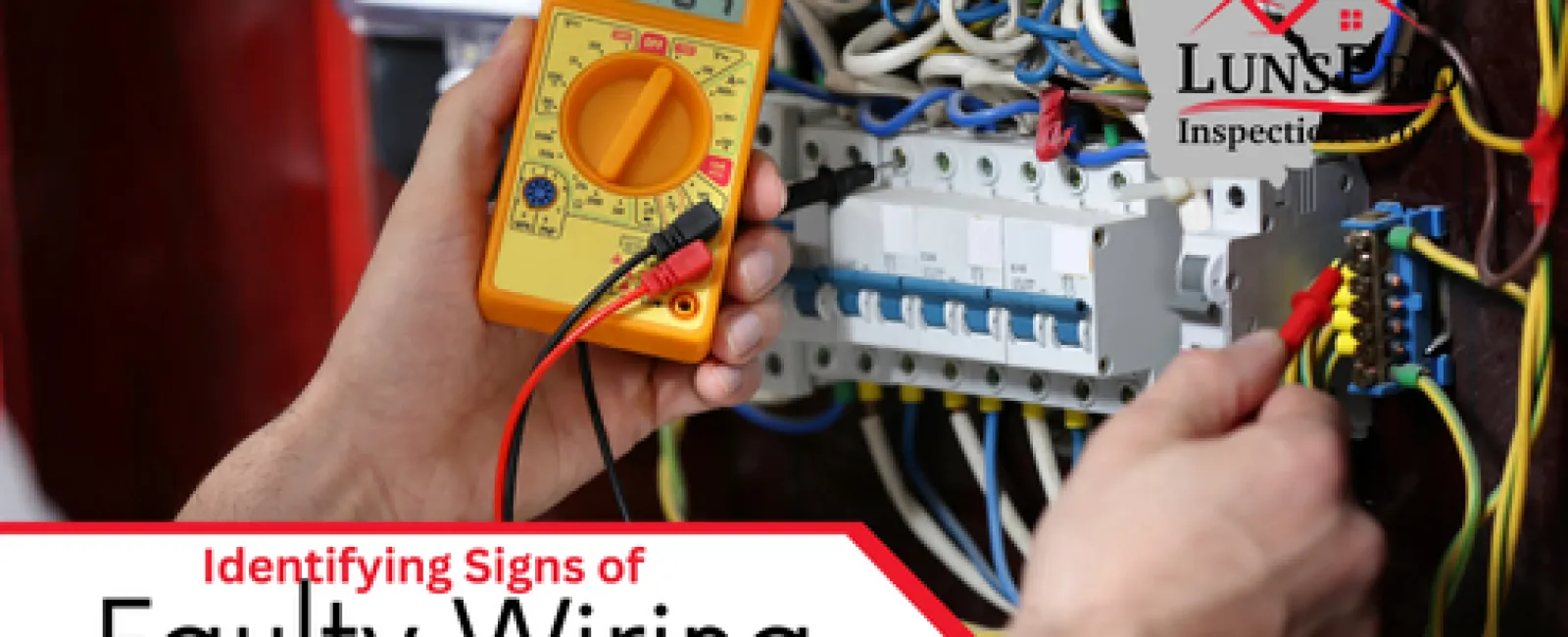Older homes carry a distinct charm, often featuring beautiful architecture and craftsmanship that is difficult to find in modern houses. However, beneath their aesthetic appeal, older homes may also hide numerous hazards—one of the most significant being faulty wiring. Electrical issues in older homes can pose serious risks, from fire hazards to costly repairs. Identifying these signs early can help homeowners address potential dangers before they escalate. This article will provide essential insights into how to recognize faulty wiring in older homes, ensuring that your property remains safe and functional.
Electrical systems in older homes, particularly those built before the 1970s, may not meet modern safety standards. Over time, wiring can degrade, connections can become loose, and outdated electrical components may fail to handle the demands of today's appliances and technology. Homeowners must be vigilant in spotting the signs of faulty wiring, as ignoring these warning signs could lead to significant home hazards such as electrical fires or shocks.
For homeowners in North Carolina, identifying these signs is crucial to protecting both property and occupants. LunsPro Inspection Group, a trusted provider of Carolina residential and commercial inspections, is experienced in identifying electrical problems in older homes. With the help of a Carolina home inspector, homeowners in Charlotte, Raleigh, Greensboro, and surrounding areas can ensure their homes are safe and up to code.
1. Outdated Wiring Systems: Know the Warning Signs
Many older homes still operate with outdated wiring systems that pose serious risks. Some common outdated systems include knob-and-tube wiring, aluminum wiring, and non-grounded outlets. Each of these systems presents its own set of potential hazards.
Knob-and-Tube Wiring: Common in homes built before the 1950s, knob-and-tube wiring is often considered a fire hazard due to its lack of grounding. The insulation on these wires can also deteriorate over time, increasing the risk of electrical fires. Look for black knobs and ceramic tubes mounted on beams in the attic or basement. If you spot these components, it's time to call a professional for an inspection.
Aluminum Wiring: Homes built in the 1960s and 1970s may have aluminum wiring, which expands and contracts more than copper, leading to loose connections that can cause overheating. Signs of aluminum wiring issues include warm outlets, scorch marks, and flickering lights. LunsPro Inspection Group recommends having an expert perform Carolina wiring inspections to assess the condition of aluminum wiring and make necessary updates.
Non-Grounded Outlets: Non-grounded outlets lack a grounding wire, making them more dangerous because they cannot direct excess electricity safely into the ground. These outlets typically have two prongs rather than the modern three-prong outlets. Homes with non-grounded outlets are more susceptible to electrical shocks and surges. If your home has these outlets, consider upgrading to safer grounded options.
2. Frequent Circuit Breaker Trips and Blown Fuses
Frequent tripping of circuit breakers or blown fuses is a sign that the electrical system is overloaded or malfunctioning. Older homes may not be equipped to handle the power demands of modern appliances, causing circuits to trip frequently. If you notice this happening regularly, it's crucial to have a Carolina home inspector examine the electrical system.
Tripping breakers can indicate a number of problems, such as faulty wiring, overloaded circuits, or outdated electrical panels. An inspection from LunsPro Inspection Group will help identify whether the home's electrical system requires an upgrade or repairs to prevent potential hazards. In some cases, adding additional circuits or upgrading the electrical panel may be necessary to bring the home up to modern standards.
3. Flickering or Dimming Lights
Another common sign of faulty wiring in older homes is flickering or dimming lights. While flickering lights can sometimes be caused by a loose lightbulb, they can also indicate a more serious issue, such as loose wiring connections or overloaded circuits. Flickering lights can also be a sign of inadequate electrical capacity or deteriorating wiring.
In homes with aluminum wiring, flickering lights may be a sign that the wiring connections are loose due to the expansion and contraction of the metal. If you notice lights flickering when you turn on appliances, such as air conditioners or microwaves, it may indicate that the home's wiring system is unable to handle the electrical load.
LunsPro Inspection Group offers comprehensive Carolina wiring inspections to detect these issues before they escalate into dangerous situations. In cities like Charlotte, Raleigh, and Greensboro, older homes often require electrical updates to handle modern appliances and ensure the safety of residents.
4. Warm or Discolored Outlets and Switches
Warm outlets, switches, or even electrical panels are a clear indicator of faulty wiring. When electrical components overheat, they can become a significant fire hazard. Additionally, if you notice any discoloration around outlets or switches, it's a sign that the wiring may be overheating or arcing. Arcing occurs when electricity jumps between loose or broken wires, generating excessive heat that can cause electrical fires.
Homeowners in North Carolina, particularly in older homes in Raleigh or Greensboro, should pay close attention to these warning signs. If you notice heat or discoloration around electrical outlets or switches, it's critical to contact a Carolina home inspector immediately to investigate the cause. Upgrading to modern outlets or rewiring the home may be necessary to prevent future hazards.
5. Strange Odors or Buzzing Sounds
Unusual odors or buzzing sounds coming from electrical outlets, switches, or panels are major red flags. Burning smells may indicate that wires are overheating, which could lead to electrical fires if not addressed promptly. Buzzing or crackling sounds from outlets, switches, or even the breaker panel are often signs of loose wiring connections or faulty circuits.
If you encounter these issues, turn off the power to the affected area and contact a professional to assess the problem. LunsPro Inspection Group recommends scheduling a Carolina residential and commercial inspection to determine the source of the issue and take corrective action. Identifying and fixing faulty wiring early can prevent costly repairs and reduce the risk of fire.
6. Sparking from Outlets or Switches
Sparks are never a good sign when it comes to electrical systems. If you see sparks when plugging in appliances or turning on switches, this is a sign that something is wrong. It could be due to worn-out wiring, loose connections, or an overloaded circuit. Sparking can cause electrical fires, so it's important to address the issue immediately.
Older homes, especially those in Charlotte or Greensboro, may have outdated wiring that isn't equipped to handle modern electrical loads. In such cases, rewiring the home or upgrading the electrical panel may be necessary. LunsPro Inspection Group can perform detailed inspections to identify sparking issues and recommend appropriate solutions for safer electrical systems.
7. Insufficient Electrical Capacity
Homes built several decades ago weren't designed to accommodate the number of electronic devices and appliances we use today. Older electrical systems often have insufficient capacity to handle the increased demand, which can lead to overloaded circuits, flickering lights, and tripped breakers.
In areas like Raleigh and Charlotte, where homes may have been built 50 or more years ago, it's common to find electrical systems that are undersized for modern needs. Carolina home maintenance should include updating these systems to ensure that they can handle today's electrical demands safely and efficiently. Adding new circuits, upgrading the panel, or replacing outdated wiring are some of the ways to improve electrical capacity in older homes.
8. Specialized Inspections Using Drone Technology
One of the unique advantages offered by LunsPro Inspection Group is the use of Greensboro drone inspections to assess home exteriors and roofs for potential electrical hazards. Drones provide a bird's-eye view of hard-to-reach areas, helping to identify electrical problems, such as exposed wiring or damaged electrical fixtures, that may not be easily visible from the ground. This advanced technology allows for a more comprehensive assessment of a home's electrical system, ensuring no potential hazard goes unnoticed.
Identifying signs of faulty wiring in older homes is critical to maintaining the safety and integrity of your property. Whether it's outdated wiring systems, frequent circuit breaker trips, flickering lights, or warm outlets, being proactive about addressing these issues can prevent dangerous home hazards such as electrical fires or shocks.
For homeowners in North Carolina—whether in Charlotte, Raleigh, or Greensboro—LunsPro Inspection Group offers comprehensive Carolina residential and commercial inspections that include thorough assessments of electrical systems. Through expert Carolina wiring inspections, homeowners can ensure their properties are up to modern safety standards and avoid costly repairs in the future.
If you're living in an older home or considering purchasing one, don't overlook the importance of an electrical inspection. Reach out to LunsPro Inspection Group to schedule a professional inspection today. With our expertise, you can rest assured that your home's electrical system is safe, functional, and compliant with modern standards.

